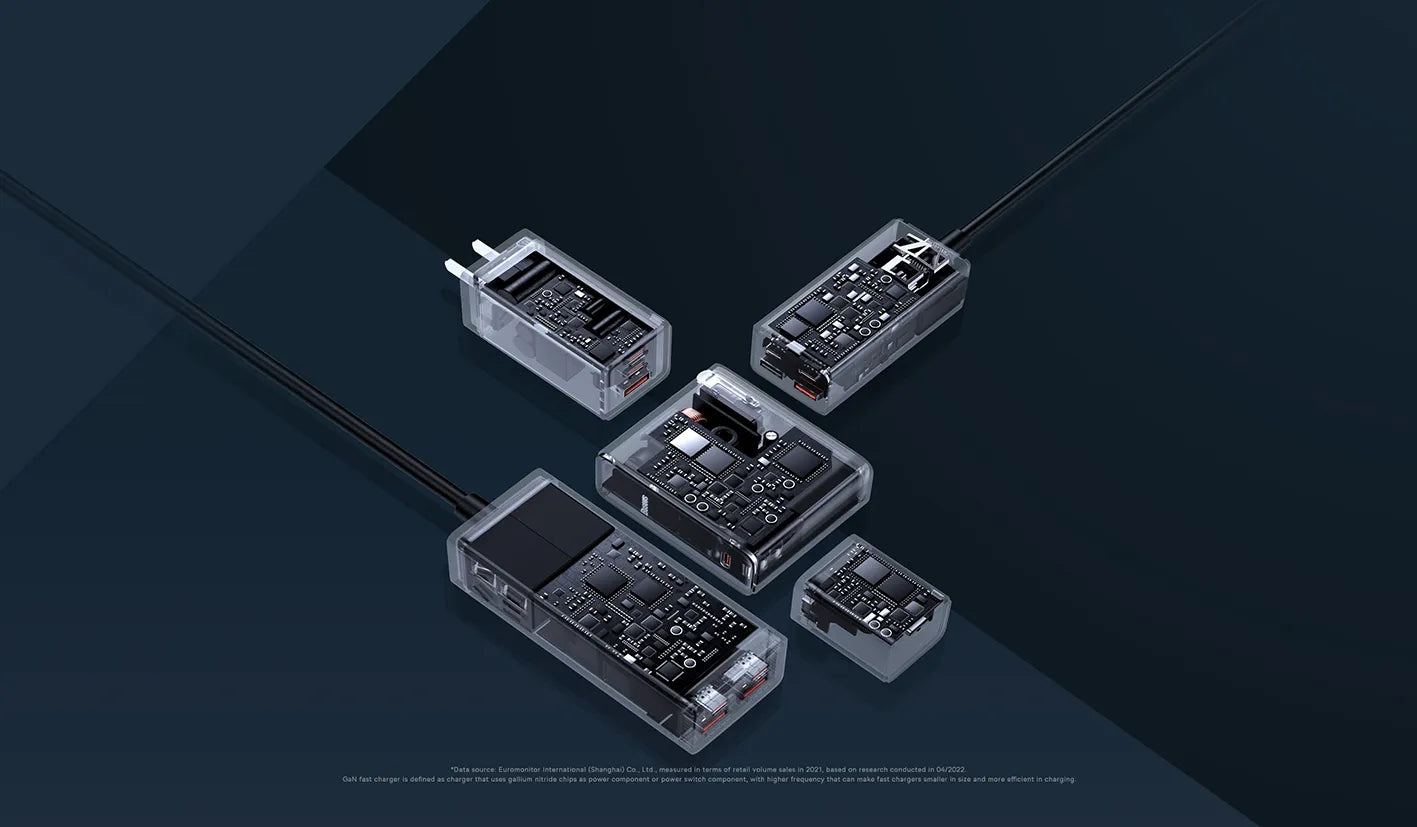With wireless tech becoming increasingly popular, it’s reasonable for people to want to charge their phones wirelessly too. However, wired chargers are still a thing– all phones have a charging port. So, which is better for charging your phone, wired chargers or wireless ones?
Unfortunately, there isn’t a clear-cut answer for which charging method is best. Wireless and wired charging have pros and cons, and to determine which type of charger is right for you, you’ll have to do some research. This guide will cover how each type of charger works and how it’ll affect your phone’s general use.
How do Wired Chargers Work?
Just about every cellphone, computer, or device holding a charge comes with a charging cable and power adapter. The process is simple: plug the adapter into the wall, plug the charging cable into the adapter, and then plug in your phone. WIRED’s article about charging circuits goes into more detail about how your phone’s charging cable sends electricity from the power source to your phone. Still, the process is generally like moving water through a hose from one place to another.
How does Wireless Charging Technology Work?

Wireless chargers work in a similar fashion by moving electricity from a power source to your phone, but this time, there are no charging cables involved. Instead, wireless chargers use tightly-wound conductive coils. The conductive coils (usually made from copper) create an oscillating magnetic field that creates a current between one or more antennas. First pioneered by Nikola Tesla, the Tesla Coil creates a magnetic field between two circuits: a transmitter circuit and a receiver circuit. In the case of wireless charging, the transmitter is your wireless charger/outlet, and the receiver is your phone. As long as the transmitter and receiver oscillate at the same frequency, the electric current will increase, thus charging a battery.
In traditional wireless chargers, the copper coils used to create the magnetic field are very small and can’t reach very far to charge things. That’s why you have to put your phone on the wireless charging station for it to charge.
The Pros and Cons
Wireless chargers are incredible, and the technology will only improve. For now, though, there are some things wired chargers can do that wireless ones can’t. To determine which charger is best for you, consider how each affects the following:
Charging Speed
Wired chargers work fast, and technology for “fast charging” and “super fast charging” just keeps improving. When plugging their phones in, most people expect a full charge in about an hour. This is great for people who don’t always have time to sit and let their phone charge for hours.
On the other hand, wireless chargers take a while to fill up your phone’s battery. Since the coils in the charging station are so small, the electromagnetic field the charger creates is relatively weak. Many people with wireless chargers use them overnight.
Accessibility
Wired chargers tether your phone to one place, but you can still use them if you’re next to an outlet. Plugging your phone in while it updates is the norm, as is using that time plugged in to watch a video or play a game.
Wireless chargers, however, give you complete ease of access to your phone at all times, at any angle, without worrying about ripping out your charging cable. However, you can’t use your phone while it’s on the charger.
Case Compatibility
Cases are a great way to customize your cell phone or computer and add durability to your device– especially if you’re accident-prone. All phone and computer cases also leave a little spot for you to plug in your charger.
Some phone cases, however, block or dampen the electromagnetic field generated by wireless chargers, preventing your phone from charging while the case is on. Cases compatible with wireless charging devices vary in price and aren’t nearly as common as standard phone cases.
Portability
A wired charger and power adapter are great accessories if you’re on the go since you can plug your phone in to charge it just about anywhere. Many colleges, libraries, and coffee shops also have USB outlets, so you don’t even have to bring an adapter! While the cable and brick take up extra space in your bag, it’s worth it if you use your phone or computer often. Charging cables also connect to external batteries, which are great tools if you aren’t near an outlet.
Wireless chargers are much bulkier and typically come as phone stands or large pads. They don’t often fit in a standard bag and are more fragile than a simple cable. While you can just grab your phone whenever you need it from a wireless charger, they’re not the best tool to bring along when you’re spending a day out.
Universal Compatibility with Phones
The most annoying thing about wired chargers is that they don’t work for every phone. While some countries are developing technology regulations that require all phones to be USB-C compatible, this isn’t the case in America yet, and we still have to suffer.
On the other hand, wireless chargers don’t rely on cables or an input to charge your devices. Because of this, they’re compatible with any phone capable of charging wirelessly and any other device you can charge wirelessly too. It’s probably a bit awkward to fit your laptop on a wireless charger phone stand, though.
Another benefit of wireless charging is that it allows some devices to charge others: for example, the Samsung Galaxy Note 20 has a wireless charging mode where it shares its charge with other phones placed on top of it!
Battery Protection
Wired chargers do not protect your phone from overcharging or overheating. While the cables do limit how much electricity flows into your device’s battery, overcharging is still a common cause of premature phone death or shortened battery life.
Wireless charging stations feature sensor systems that can tell if your battery is getting too hot. As a result, they’ll slow the charging process and give your device some time to cool. Wireless chargers are one of the best ways to protect your phone battery from overheating or expanding– they can extend your phone’s life expectancy by years!
Price
If you’re looking for something inexpensive, wired chargers are the best way to go. You can find USB-C charging cables for around $5 at gas stations, and phones usually come with compatible chargers in the packaging. Chargers are also easy to replace, and you can find longer or shorter cables based on your needs.
Wireless chargers, however, are a bit more expensive. Since this technology is relatively new (at least in terms of use), companies that develop wireless chargers are few and far between. Many charging stations are patented or use patented technology, which is expensive to get ahold of, so their prices are usually much higher than your standard charging cable.
Which is Better?
That brings us back to the ultimate question: which is better, wired chargers or wireless ones? Depending on your situation, one charger might suit you better than the other one:
When to Use a Wired Charger
The best times to use a wired charger are when you’re on the go, looking to save money, or need battery power fast.
On the Go
Since wired charges can plug into any outlet or external battery, they’re great for charging devices anywhere. Although they aren’t always compatible with other phones, it’s still possible to share chargers with others if they have the same type of phone as you. The USB input also allows you to charge your phone without an adapter brick, making wired charging accessible almost everywhere.
When You Need a Quick Charge
A wired charger’s ability to quickly charge devices is unparalleled, making it even better for use on the go, especially if you don’t plan on waiting for your phone to charge up to 100% battery.
When to Use a Wireless Charger
Wireless chargers are best if you plan on keeping your phone on the charger for extended periods.
On the Go
The wireless charger could also be used on the go. A wireless portable charger could be there with you whenever you need it! If you are thinking that a wireless charging requires you to place your phone in one position too long, then a wireless portable charger could be your best choice! A wireless power bank and charger could let you worry less about ables.
At Home or Overnight
At home, wireless chargers are a great way to put your phone down and let it just refuel while you relax. If you work at an office, keeping your phone on a charging stand near your desktop is also an excellent solution for people who actively use their phones for work but don’t need to travel often. For example, the Swan MagSafe Charger Stand holds your phone in place with a magnet that doesn’t damage the phone’s hardware. The stand’s sleek design blends well in any room, and since your phone is upright, you can also use it as an alarm clock.

The best time to use a wireless charger is when you’re about to sleep: you don’t have to fiddle with a charging cable and can instead just place your phone on the charging pad and leave it there for the whole night.
With a Compatible Phone Case
If you’ve got a wireless charging compatible phone case, use your wireless charger to get the most out of your phone. Phone cases already extend your phone’s lifetime by protecting it from damage, and wireless chargers extend your phone’s battery life by sensing when it starts to overcharge or overheat. The two are a perfect combination if you’re looking to use your phone for many years.
With Other Phones
Having a universally-compatible phone charger at your disposal is great, especially if you have guests over. If someone needs to charge their phone, put it on top of it or give them your wireless charger! They won’t have to worry about their phone dying as long as you’re around.
 United States/English
United States/English











1 comment
MOHMED AYMAN ABDELRAHMAN
Baseus can make wireless charging complete in the sense that we will not need the connection cable for the base, it will be 100% wireless charging, so why not do that ؟؟؟ Greetings to all .
Baseus can make wireless charging complete in the sense that we will not need the connection cable for the base, it will be 100% wireless charging, so why not do that ؟؟؟ Greetings to all .